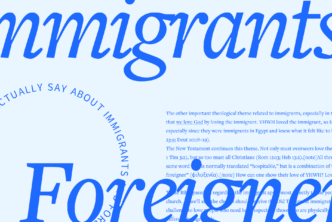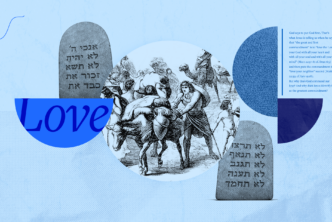We have offered some preliminary comments on preaching, its purposes and the mindset of the preacher. Now I want to offer some guidance on Bible study and exegetical resources.
Now, it would be easy for me to go on and on with book recommendations, but I thought it be would be more helpful to offer my TOP FIVE (-ish) recommendations for each category.
Reading the Greek Text
- UBS5 (Reader’s Edition). It’s elegant, state-of-the-discipline, user-friendly.
- Bible Software
- Bibleworks – I have used Bibleworks for fifteen years (!). But sadly they have closed their business, so I recently purchased Accordance.
- Accordance – this is the go-to Mac-user software*; elite, powerful, but very expensive.
- Logos – I own and use Logos a lot, but not for “reading the Greek text.” I use it for dictionaries, commentaries, and a few other things. To get a good language package, you need some $$$, but it is not unreasonable.
- StepBible (www.stepbible.org) – this free website/app allows you to read the Greek/Hebrew text, do some basic word study, and search words in NT and Septuagint. It is the best free site I have seen for language-oriented study.
- Interlinears? I don’t use interlinears, and I don’t really recommend them either. They are set up in a way to force you to compare English to Greek in a rigid way, and therefore the information you “glean” can be misleading. But if you are going to use one, try this one.
*Nijay is, of course, entitled to his opinion (even if the editors disagree!).
Guides to the Exegetical Process
- Elements of Biblical Exegesis (Michael Gorman). This book is clear, practical, oriented towards theological interpretation, and offers some samples in the back of the book.
- Prima Scriptura: An Introduction to New Testament Interpretation (Clayton Croy). Digs a bit more into theory, not as good with the practicals, but very insightful and complements Gorman.
- Scripture and Its Interpretation: A Global, Ecumenical Introduction to the Bible (ed. Michael Gorman). Multiple contributors, lots of great topics and perspectives, very reasonably priced; but read Elements first.
- Inductive Bible Study (Bauer and Traina). A simple, clear, tried-and-true approach to inductive Bible study. It is crucial that the preacher learns how to study the text for themselves, and not jump right into secondary resources.
- The Revelatory Text: Interpreting the New Testament as Sacred Scripture (Sandra Schneiders). A very rewarding Catholic approach to treating the NT as sacred and special revelation, while also paying full attention to the human element of Scripture. I have all my hermeneutics students read this book before writing their exegesis papers.
Word Study Resources
- A Greek-English Lexicon of the New Testament and Other Early Christian Literature (known as BDAG). It is the standard lexicon for New Testament study; overall it is reliable, but do not assume it is always correct or that all scholars agree on its findings.
- Greek-English Lexicon of the New Testament Based on Semantic Domains (aka, Louw-Nida). I actually prefer these definitions and glosses to BDAG overall. But I am weird.
- New International Dictionary of New Testament Theology and Exegesis (ed. M. Silva). A very good, detailed resource. Worth buying the set.
- Exegetical Dictionary of the New Testament (EDNT). Reliable, but not mind-blowing.
- Theological Lexicon of the New Testament (TLNT, C. Spicq). This set is not exhaustive, there are many NT Greek words you won’t find in here, but when he does have an entry, I find his thoughts very stimulating and worthwhile.
- Vocabulary of the Greek New Testament (VGNT, or Moulton and Milligan). This unique lexicon uses inscriptions and “non-literary papyri” (i.e., personal correspondence) to inform our understanding of Greek words. Here’s the basic idea: how were these words used in everyday life and conversation? VGNT tends to be anecdotal rather than exhaustive, but always worth consulting.
Dictionaries
- IVP “Black” Dictionaries. E.g., the Dictionary of Jesus and the Gospels, Dictionary of Paul and His Letters, etc. These sources are invaluable. There are also several excellent thematic volumes such as the New Dictionary of Biblical Theology and the Dictionary of New Testament Backgrounds. My personal copies are well worn!
- New Interpreter’s Dictionary of the Bible. This is a great set—up to date, leading scholars, accessible and lucid information for pastors and for Bible study. Your church should own this.
- Anchor-Yale Bible Dictionary. A hefty, academic set, and now a bit dated, but still a trusted standard in the guild.
- Dictionary of Theological Interpretation of the Bible (Baker). The entries are “hit-and-miss,” but always worth a peek. Whether you are looking up a theme, biblical book, etc., great stuff on reception, theological importance, and so forth.
- Dictionary of Scripture and Ethics (Baker). Another good thematic dictionary, I have a few entries in here.
- Eerdmans Dictionary of Early Judaism. Obviously, this is very niche, but an outstanding resource for understanding Jewish ideas, traditions, and practices.
Academic/Technical Commentaries
Here I will only list series that dig into the details of the text and its ancient context. In a later post I will recommend commentaries that reflect theologically and move in the direction of application.
- Word Biblical Commentary (OT and NT). Very detailed, many volumes are getting outdated, but still solid section-level bibliographies and highly competent scholarship overall.
- New International Commentary on the New Testament (OT = New International Commentary on the Old Testament). Most volumes offer a blend of academic material and (light) theological exposition.
- New International Greek Testament Commentary (NT only). Heavily engaged with the Greek text.
- Anchor Bible Commentary (OT and NT). Generally offers a “critical” academic approach to the biblical text, but many volumes are classics.
- International Critical Commentary (OT and NT). A moderate “critical” commentary that engages closely with the Greek text.
- Zondervan Exegetical Commentary on the New Testament (NT only). An evangelical series that focuses on the Greek text.
This post was originally published on Nijay’s blog, Crux Sola.




